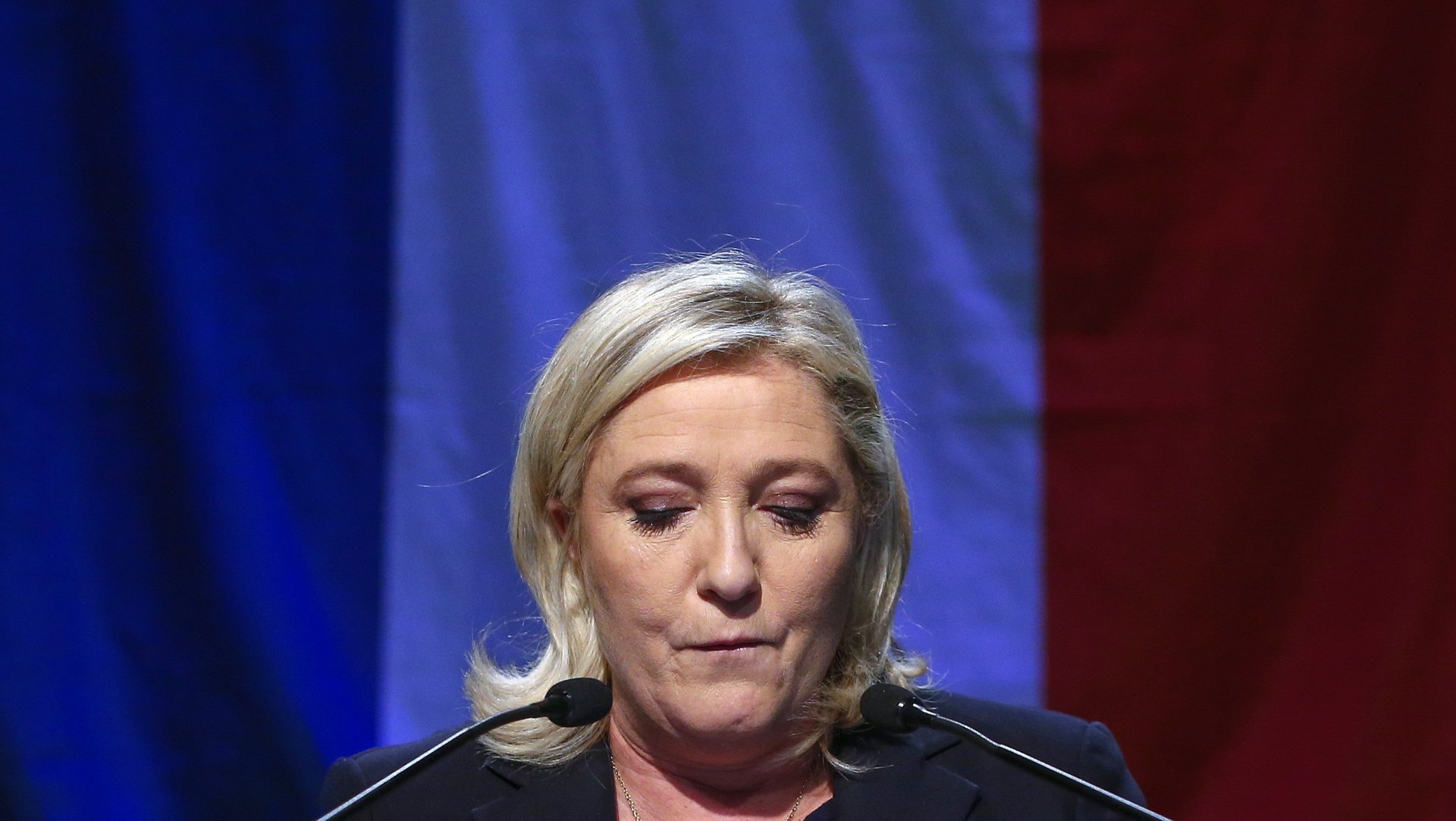France has united to give the far-right National Front yet another a painful defeat
At this time last week, the far-right National Front was riding high as “the first party of France,” as it called itself. After all, it had just secured the largest share of votes for regional council seats, with 28% of the vote nationwide, and placed first in six of the country’s 13 regions. Its anti-immigration platform played well among fears of terrorism and high unemployment.


At this time last week, the far-right National Front was riding high as “the first party of France,” as it called itself. After all, it had just secured the largest share of votes for regional council seats, with 28% of the vote nationwide, and placed first in six of the country’s 13 regions. Its anti-immigration platform played well among fears of terrorism and high unemployment.
But in the end, French voters were determined not to let the populist tone determine the election. In the second round of run-off voting yesterday (Dec. 13), the National Front failed to win power in any of the country’s 13 regions. It was undone by strategic voting among supporters of the two mainstream parties, who banded together to support the non-National Front candidate, regardless of their allegiance.
Turnout jumped significantly in the second round, and few of these votes went to the far right. In fact, the National Front won a nearly identical share in the second round as the first.
This tactical voting mainly benefited the center-right party of former president Nicolas Sarkozy, which boosted its share of the vote from 27% to 41% between the rounds, taking power in seven regions. It owed much of this boost to the center-left party of incumbent socialist president Francois Hollande, which urged party members to vote for the center-right candidate in regions where the National Front was strongest.
This kind of unity against the far right has history. In 2002, the party’s founder, Jean-Marie Le Pen, stunned France by winning enough votes in the first round of the presidential election to make it into the second-round run-off election against the center-right candidate Jacques Chirac. Le Pen lost by a landslide in the second round of voting, with 82% of the vote going to Chirac.
This year, with first-round results in two key regions showing huge support for current National Front leader Marine Le Pen (daughter of the party’s founder, pictured above) and her niece Marion Marechal-Le Pen, the socialists pulled their candidates and urged supporters to vote for their center-right rivals.
Le Pen called these tactics a “campaign of calumny.” But despite the second-round defeat, the fact remains that the far right’s appeal in France is growing. Socialist prime minister Manuel Valls warned that the “danger posed by the far right has not gone away, far from it.”
In a way, the election did not really have a winner: the socialists lost seats to the center-right, which should have capitalized more on dissatisfaction with the current government and owed much of their gains to socialist supporters. Meanwhile, the National Front was wiped out but will use the defeat to bolster its anti-establishment credentials in the next chapter of France’s electoral drama: the presidential election in 2017.